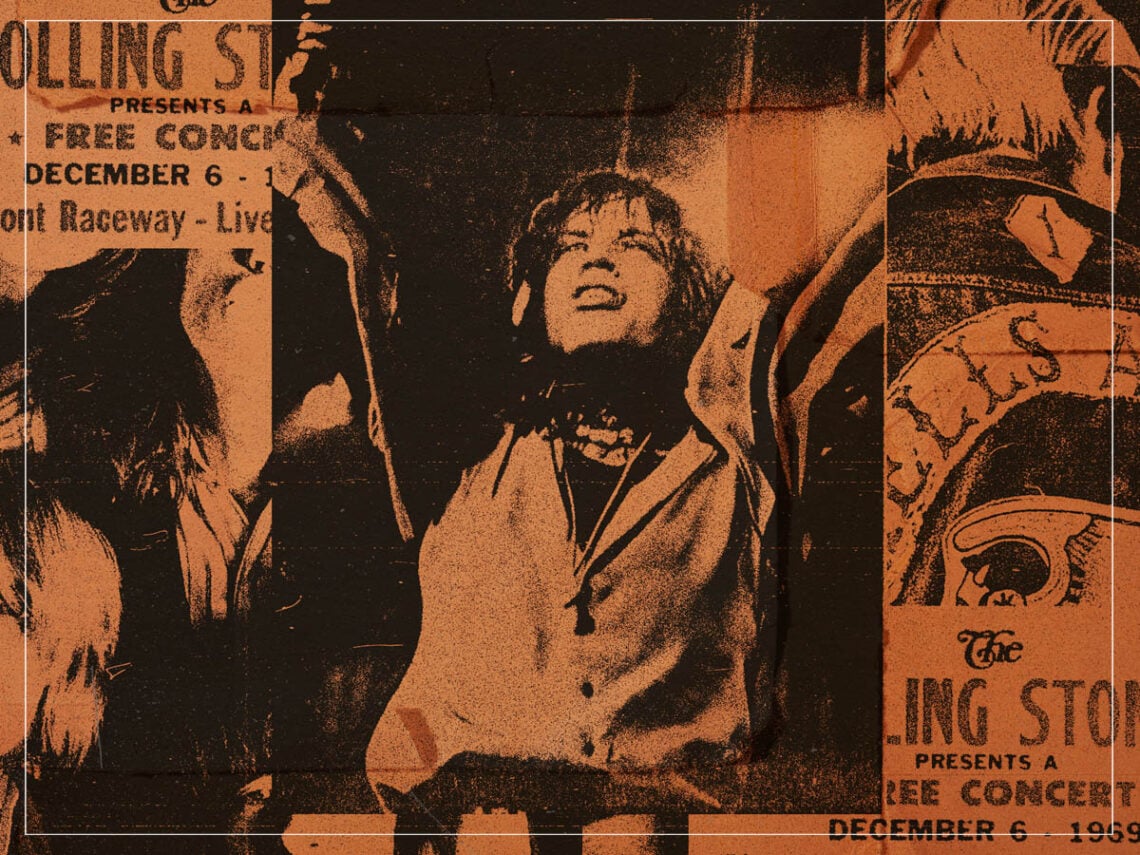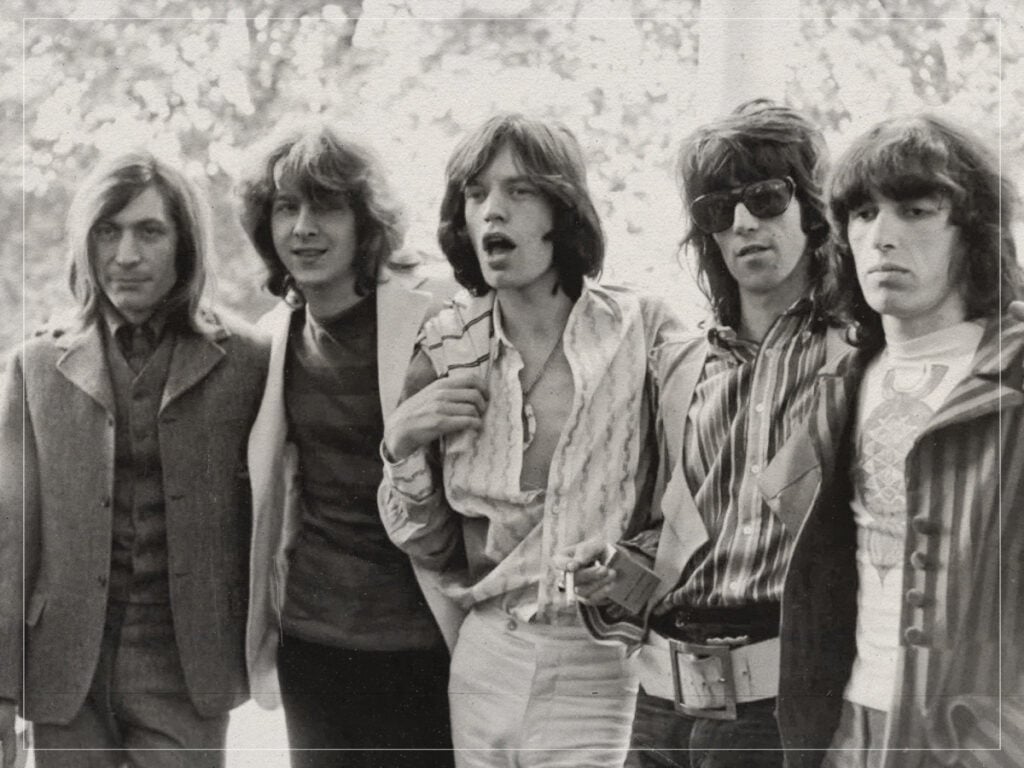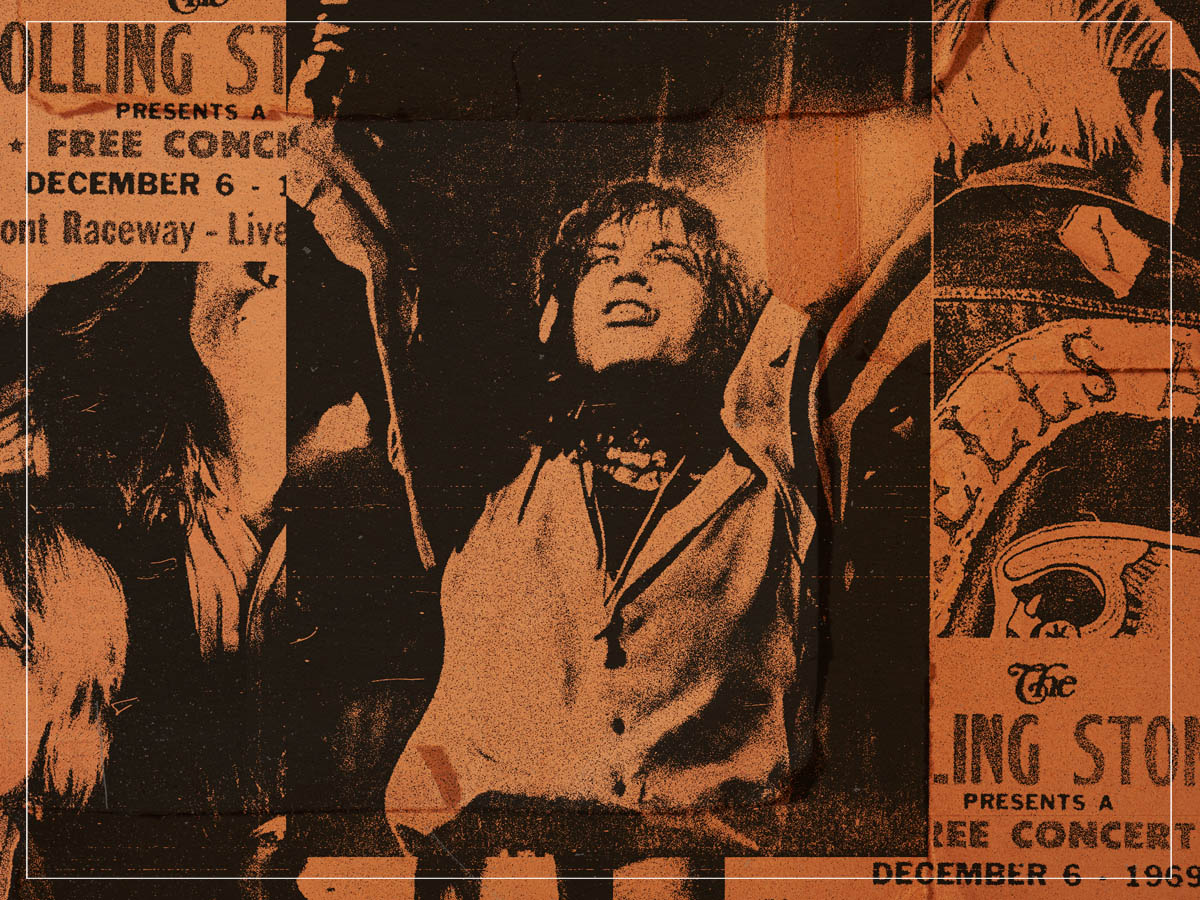
(Credits: Far Out / Picryl / Larry Rogers)
Thu 15 May 2025 23:00, UK
We don’t often consider The Rolling Stones a massively political band. The rationale behind their creation at the beginning was relatively simple: Andrew Loog Oldham put them together to take what the Beatles did and amplify it. This meant more expletives, more attitude, and longer hair. The label of sex, drugs, and rock ‘n’ roll continues to follow the band around; however, they weren’t afraid to get political when it felt right.
The band wrote several anti-establishment songs that weren’t received very well. For instance, their groundbreaking track ‘Sympathy For The Devil’ was a unique take on the end of the world. The band wrote from Satan’s point of view, discussing his influence on all of the world’s disasters.
Arguably, their most famous political song is the classic ‘Gimme Shelter’. It’s one of the standout tracks from their album Let It Bleed, and remains the calling card that fans refer to when leaving the band’s concerts. People are constantly humming the iconic rhythm to ‘Gimme Shelter’ hours after the band have finished playing, as with this track, The Rolling Stones managed to capture the confusion and desolation during one of Earth’s darkest periods.
The end of the 1960s was an incredibly interesting time for music. Assassinations and war had divided America, as the generational gap and the differences of opinion that came with it had never been clearer. As such, psychedelic music rose to the top of the charts, as the experimentation and absurd nature of a lot of it didn’t have a political agenda attached, so record labels started relying more on it. However, a lot of the other bands that weren’t considered psychedelic decided they wanted to use their platform to convey a political message.
The Rolling Stones fell into this category, as while Let It Bleed is considered one of their most popular records, it was also hotly contested at the time of release, as it was incredibly political. Mick Jagger confirmed in an interview that this was intentional. “Well, it’s a very rough, very violent era,” he said. “The Vietnam War. Violence on the screens, pillage and burning… It was a real nasty war, and people didn’t like it.”
 The Rolling Stones (Credits: Far Out / Alamy)
The Rolling Stones (Credits: Far Out / Alamy)
We can debate what their best political song is, but there is no escaping their most iconic, ‘Gimme Shelter’. During a period of confusion, anger, and passion, The Rolling Stones capture all three with this piece, which delivers its message clearly and is a masterclass in musical excellence.
The chord sequence: C# B A E A E A E A E B delivers a strange feeling, one that is both upbeat but also laced with dread. They set the stage for The Rolling Stones, as they enter one of their darkest eras, ready to be unapologetically political when they talk about the war, class and societal injustices. The fact that these problems persist contributes towards the timelessness of the track. That feeling established by those chords resonates in 2025 as much as it did in the ‘60s, and so we keep listening.
The vocals of Mary Clayton also add to the harrowing feel of the song. Clayton adds a great deal of pain and frustration to the piece with her stunning vocals, which go up an octave throughout the track in a truly awe-inspiring way.
“That song was written during the Vietnam War, and so it’s very much about the awareness that war is always present; it was very present in life at that point. Mary Clayton, who did the backing vocals, was a background singer who was known to one of the producers,” said Jagger when discussing the track.
Concluding, “Suddenly, we wanted someone to sing in the middle of the night. And she was around. She came with her curlers in, straight from bed, and had to sing this really odd lyric. For her, it was a little odd – for anyone, in the middle of the night, to sing this one verse, I would have been odd. She was great.”
Related Topics
Subscribe To The Far Out Newsletter
